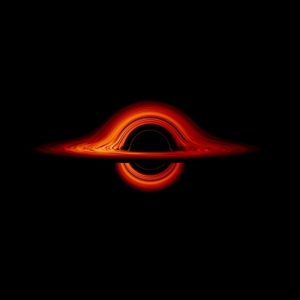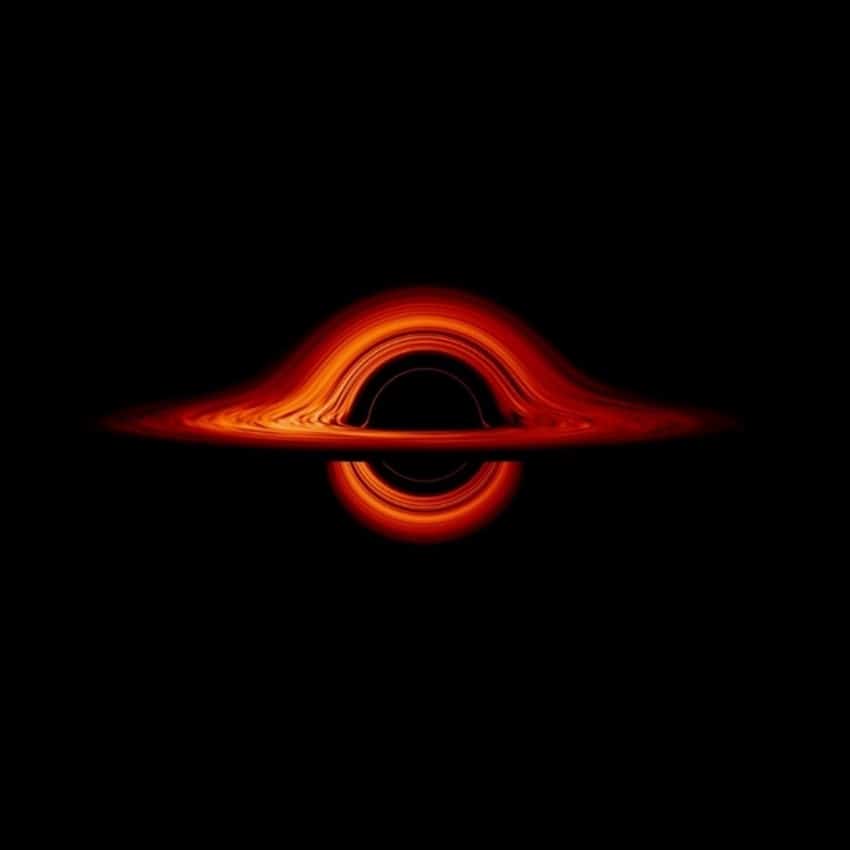
If so, you’re not alone. Black holes are by definition problematic to observe. In fact, it was only in April of this year that astronomers unveiled for the first time an image of a black hole in Messier 87 , a supergiant galaxy located in the constellation Virgo. So who knew that an entire week might be dedicated to observe their intriguing existence?
NASA used its “Black Hole Week” as an opportunity to release on September 25th a collection of stunning animated visualizations created by Jeremy Schnittman of NASA Goddard Space Flight Center. The simulations render details of a black hole, such as the accretion disk, that make the blurry image shared with the public in April more comprehensible to the nonexpert. NASA has made numerous versions of black hole simulations available for free download. Camille M. Carlisle offers additional context for appreciating the simulations in her brief Sky & Telescope article, “Black Hole Warps Light.”
UI faculty researchers and their students are no strangers to the attraction of black holes. Physics & Astronomy Professor Philip Kaaret, Associate Professor Cornelia Lang, and graduate research assistant Matthew Brorby spoke with the Daily Iowan in 2017, giving a peek into their research interests while also offering a quick introduction to black holes.
To learn more about black hole research at the University of Iowa “Listen to the Gravitational Waves From Merger of Black Holes” on a 2016 edition of Iowa Public Radio’s River to River interview with Prof. Kaaret, or read a 2017 Iowa Now article on how the universe may have paradoxically become filled with light as a result of black holes. Prof. Lang comments on the enigmatic filaments “clustered around the supermassive black hole at the center of our galaxy” in a September 2019 article, “The Milky Way Has Giant Bubbles at Its Center” from The Atlantic. Associate professor Hai Fu spoke to Wired in 2017 about his research on quasars and black holes, and discussed the role of black holes in merging galaxies in another 2017 Iowa Now article.
If you are not already an aficionado of black holes, you can make this week your own Black Hole Week by exploring resources available from the Sciences Library noted below. Don’t hesitate to ask a librarian if you need further help navigating through the literature on black holes.
Featured Books
Black Hole : How an Idea Abandoned by Newtonians, Hated by Einstein, and Gambled on by Hawking Became Loved by Marcia Bartusiak
Black Holes : a Very Short Introduction by Katherine Blundell
Einstein’s Monsters : The Life and Times of Black Holes by Chris Impey
What Does a Black Hole Look like? by Charles D. Bailyn
Selected Electronic Resources
Search for “black holes” among the many books, book chapters, and journal articles offered by the Institute of Physics
Oxford Companion to Cosmology entry for “Black Holes”
Thank you, Kai Weatherman, for writing this illuminating blog post on black holes!
